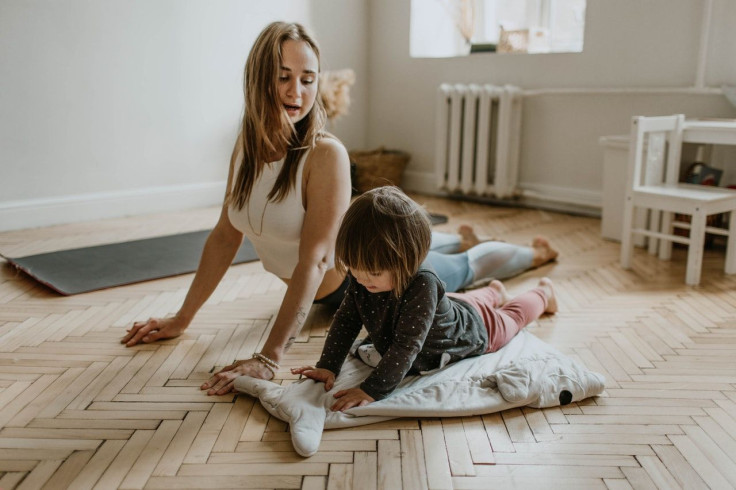National Child Health Day 2020: Ways You Can Make The Day Special For Your Kids
KEY POINTS
- National Child Health Day was first observed in 1928
- The day raises awareness about how children's health can be protected and developed
- The day does not have the status of a public holiday
Since May 18, 1928, the country has observed the National Child Health Day on the first Monday of October. The day highlights the care and guidance that children should receive from adults to uphold their health and overall well-being.
National Child Health Day was first observed in 1928 after President Calvin Coolidge issued a proclamation. Initially, the day was celebrated on May 1 but in 1960, it was changed to the first Monday in October. Ever since it is being observed on this day to raise awareness about how children's health can be protected and developed in the right way.
Instead of being a national observance, the day still does not have the status of a public holiday.
Here's How To Observe National Child Health Day At Home
It's important to keep encouraging kids to try new things out. Here's a list of ways families can observe the National Child Health Day 2020 at home and make the day memorable for kids.
- Become Active: A simple activity at a local park would do. Play with your children, let them run for hours to keep them away from their gadgets so their mental health can stay intact.
- Make Time For Kids: Parents may also mark the first Mondays of October each year on their calendars and keep the day free to spend it talking and discussing things with their kids.
- Fix Appointment With Doctor: Parents can set the day as a fixed schedule for children’s routine visits to their pediatricians. A visit to the dentist can also be scheduled if needed.
- Set Examples For Kids: Adopt healthy habits so your children can learn from you and understand the importance of staying healthy and fit. Try and add new and healthy activities to your children’s routine.
- Involve Kids In Meal Prep: Including your children in the cooking process will help develop healthy eating habits in them. A nutritious dinner with all family members and having a meaningful conversation will be perfect to end the day.

The White House is at the forefront of safeguarding the physical and mental health of children across the nation. Here are four ways the White House is leading the way in observing the National Child Health Day 2020:
1. Empowering pregnant mothers, infants, and families with $100-million investment in Healthy Start
An initiative started in 1991, Healthy Start has since made things better for pregnant women, infants, and children. Under the program, funds are distributed to 15 minority communities in both urban and rural sites with infant mortality rates higher than the nation’s average.
2. Signing the Coronavirus Aid, Relief, and Economic Security Act
COVID-19 has taken a toll on children's mental health. In fact, the pandemic's impact on their emotions is greater than that on their physical health. Children are also expected to increasingly develop feelings of isolation amid the nationwide lockdowns and school closures. The impact is grave for children from low-income families and minority communities. For these children, schools are their resources for complete meals and other basic needs that they don’t get from their own homes.
While schools have started to reopen to welcome back students, a study by the Centers for Disease Control and Prevention (CDC) published in September saw a worrying increase in coronavirus cases among school-aged kids.
The administration has asserted that American children should not be left behind when it comes to their education. And with that, it signed into law the Coronavirus Aid, Relief and Economic Security Act, or CARES, in March.
3. Getting the kids ready for the coronavirus vaccine
Children may only qualify for coronavirus vaccines after trials on adults showed significant results as to the safety and effectiveness of the injections. Many experts believed that the government should delay the coronavirus vaccine in children.
“We wouldn't start injecting 5-year-olds before we knew what this vaccine did in adults,” Dr. William Schaffner, professor of preventive medicine and infectious diseases at the Vanderbilt University School of Medicine in Nashville, said in an interview with ABC News.
“Kids are not little adults, they have very different immune systems, and you might need to have a completely different kind of vaccine for kids,” Dr. Anita McElroy, a pediatric infectious disease physician at the University of Pittsburgh Medical Center, also told ABC News.
"A lot of things we have to understand from dosage to learning from safety studies, so those take time before you can start ramping up and looking at a broader population of kids,” Dr. John Brownstein, an epidemiologist at Boston Children’s Hospital and ABC News contributor added.
In September, the President directed the Department of Health and Human Services to issue guidance under the Public Readiness and Emergency Preparedness Act. Under this Act, the government allowed state-licensed pharmacy professionals to administer vaccines to children ages three and older -- when it becomes available.
4. Recognizing the importance of raising children in a healthy environment
The president and the first lady, Melania Trump, aim to raise children who are physically, socially, and emotionally healthy. In line with those goals, the first lady launched BE BESt in 2018. The program is focused on providing children with life lessons and skills to best handle three major challenges, namely well-being, online safety, and opioid abuse.
© Copyright IBTimes 2024. All rights reserved.





















